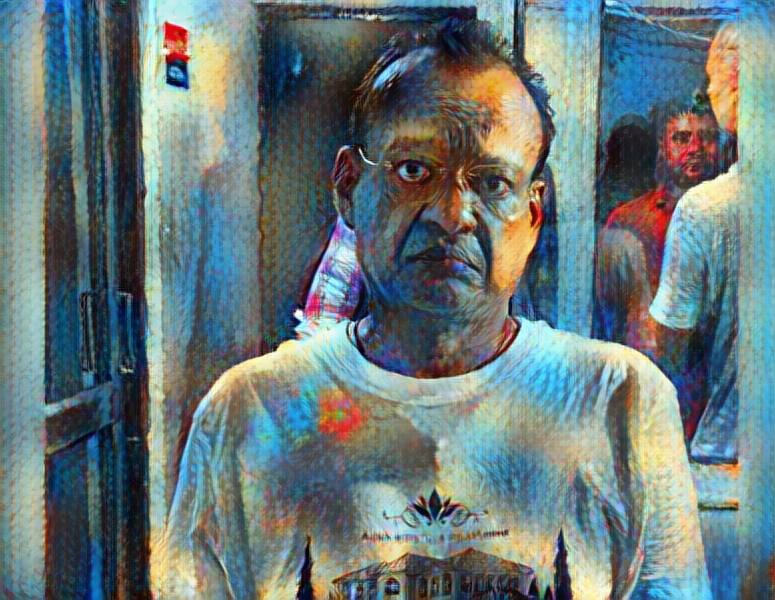 Reading Time: 5 minutes
Reading Time: 5 minutes
Welcome to the Wonderfully Absurd World of Musicals
Ah, musicals. That rare and enchanting art form where logic graciously exits stage left, creating a whimsical space for characters to burst into song as if their entire existence were underscored by a grand live orchestra. Picture this scene vividly: You find yourself at a dazzling Broadway show, precariously balancing a tub of overpriced popcorn (seriously, why does it always cost the same as a small car?) when, quite suddenly, a character on stage begins to monologue about their profound existential pain. The tension escalates; you lean forward in your seat, heart racing. Then, wham! They unleash a torrent of high notes so fierce, they could easily serve as an emergency siren echoing through the streets of Manhattan. Just when you think it couldn’t possibly get any stranger, backup dancers spring forth, shimmying in perfect synchronization as if they had been summoned from the very depths of the stage itself.
Why does this delightful absurdity occur? Is there an unspoken decree that grief and joy are best conveyed through the flamboyant gestures of jazz hands? The short answer is no; it makes no sense at all. The long answer? It simply doesn’t matter, because musicals are gloriously, unrepentantly bizarre, and that’s precisely why we adore them.
Why Are They Singing (and More Importantly, Should I Be Concerned)?
Now, imagine this: Two characters are embroiled in a heated argument over something mind-numbingly trivial, like who left the fridge door ajar. Suddenly, one of them pivots dramatically toward the audience and proclaims with operatic fervor, “It wasn’t just a fridge door … it was a gateway to my SOUL!” Cue the crescendo, as an orchestra appears out of thin air, accompanied by a troupe of dancers who must have been lurking behind the proverbial couch. At this juncture, you can’t help but wonder if this entire moment was sponsored by a hefty caffeine overdose.
This is the very essence of musicals. They operate under the sacred belief that if a feeling is intense enough, it simply must be sung. Who needs rational dialogue when you can rhyme your emotions with lyrical grace? It’s melodrama on steroids, where heartbreak is paired with a soaring three-octave range, and inner turmoil is explored through dazzling interpretive dance routines.
The Theater as the World’s Most Glittering Madhouse
If musicals had a capital, it would undoubtedly be London’s Covent Garden. This vibrant maze of charming cafes, bustling theaters, and souvenir shops selling overpriced Phantom of the Opera masks is where the devout musical fans congregate. These aren’t mere casual ticket buyers; they are fervent believers. They will sit through Cats without ever questioning why dozens of adults are crawling across the stage, dressed as if someone raided the clearance bin at Party City.
Speaking of Cats, there is no plot to speak of. None. Zero. It’s a fever dream where ballerinas, adorned in feline-inspired costumes, sing about being “Jellicle,” a word that remains shrouded in mystery, yet everyone pretends to understand. Yet, this show boasts a devoted audience. Why? Because sometimes, people simply crave glitter, chaos, and the comforting reassurance that their own lives aren’t nearly as perplexing as whatever Andrew Lloyd Webber was contemplating.
Or consider Evita. Gritty Argentine politics transformed into a Broadway sing-off? Sure, why not? Toss in Madonna crooning “Don’t Cry for Me Argentina,” and it somehow feels like history wrapped in sequins.
And then there’s Jesus Christ Superstar. The Bible, reimagined with electrifying guitars. You haven’t truly experienced religious enlightenment until you’ve witnessed Judas delivering a full-throated rock ballad while sporting a wardrobe that screams “disco fever.”
Why We Keep Getting Hooked
Why do we line up year after year for this delightful madness? Why endure fake sewage in Les Misérables or tolerate the borderline stalker vibes of The Phantom of the Opera? The answer is refreshingly simple. Musicals amplify everything.
Consider a breakup scene in a conventional drama. It’s somber, perhaps even heartbreaking. But a breakup in a musical? That’s an entirely different realm. Cue a soft piano intro, rising strings, and a voice that makes you regret every questionable decision you’ve made since the fifth grade. By the time the lights dim, you find yourself ugly crying while simultaneously purchasing tickets for next week’s show.
Musicals don’t merely ask you to suspend disbelief; they adamantly demand it. They insist you accept that a group of strangers can belt out perfectly harmonized high notes while tap dancing in sequins. And honestly? We willingly comply, because real life could never be that fabulous.
The Loveable Chaos of Broadway
Broadway is where the mantra “go big or go home” thrives in all its glittering glory. Take Les Misérables, for instance. It’s three hours of oppressed French citizens wailing about revolution, crawling through fake mud, and lamenting unrequited love. But death is not the end—not in the vibrant realm of musical theater! Your favorite character might meet their demise midway through the story, but they’ll belt out one last power ballad from beyond the grave because, well, why not?
And then there’s The Phantom of the Opera, where unsettling behavior has never appeared so glamorous. A masked man essentially gaslights an entire opera house while singing beautifully about his troubled past. Sure, he’s a social nightmare, but that falsetto, though. It’s this intoxicating combination of chaos, drama, and unapologetic extravagance that makes Broadway utterly irresistible.
The “Filler Track” That’ll Have You Checking Instagram
Of course, not every musical is flawless. Somewhere within every show lies that one awkward song. You know the one—the filler track. It’s the moment when audiences collectively zone out, contemplating life or double-checking that they locked the car. Whether it’s Sweeney Todd lamenting over pies or The Music Man waxing poetic about furniture, these oddities somehow add a delightful charm. Even at their most ridiculous, musicals keep us thoroughly entertained.
Why Musicals Stick with Us
Despite their absurdity, musicals tap into something profoundly human. They take the chaos, joy, sorrow, and sheer unpredictability of life and transform it into a spectacular experience. Whether it’s Rent urging us to measure life in terms of love or Anything Goes reminding us it’s perfectly acceptable to tap-dance our problems away, musicals reflect those moments when emotions surge too high for words alone.
And really, isn’t that what makes musicals resonate? Life doesn’t always make sense, so why should musicals? They remind us that it’s perfectly okay to be dramatic, to burst into song when the mood strikes, and to feel everything a little too loudly.
Curtain Call
Musicals aren’t merely performances; they’re experiences dripping with glitter and emotional overreaction. They grant us permission to escape into a world where heartbreak is sung, heroes tap-dance, and cats grapple with existential crises.
So, the next time you find yourself nestled in a plush velvet seat, program in hand, eagerly awaiting the overture, lean into it. Suspend your disbelief, embrace the absurdity, ugly cry during the finale (it’s practically a tradition), and hum that final number on your way out. Because for all their quirks and delightful insanity, musicals do exactly what they’re meant to do—make us feel alive, one jazz hand at a time. Bravo, indeed!



